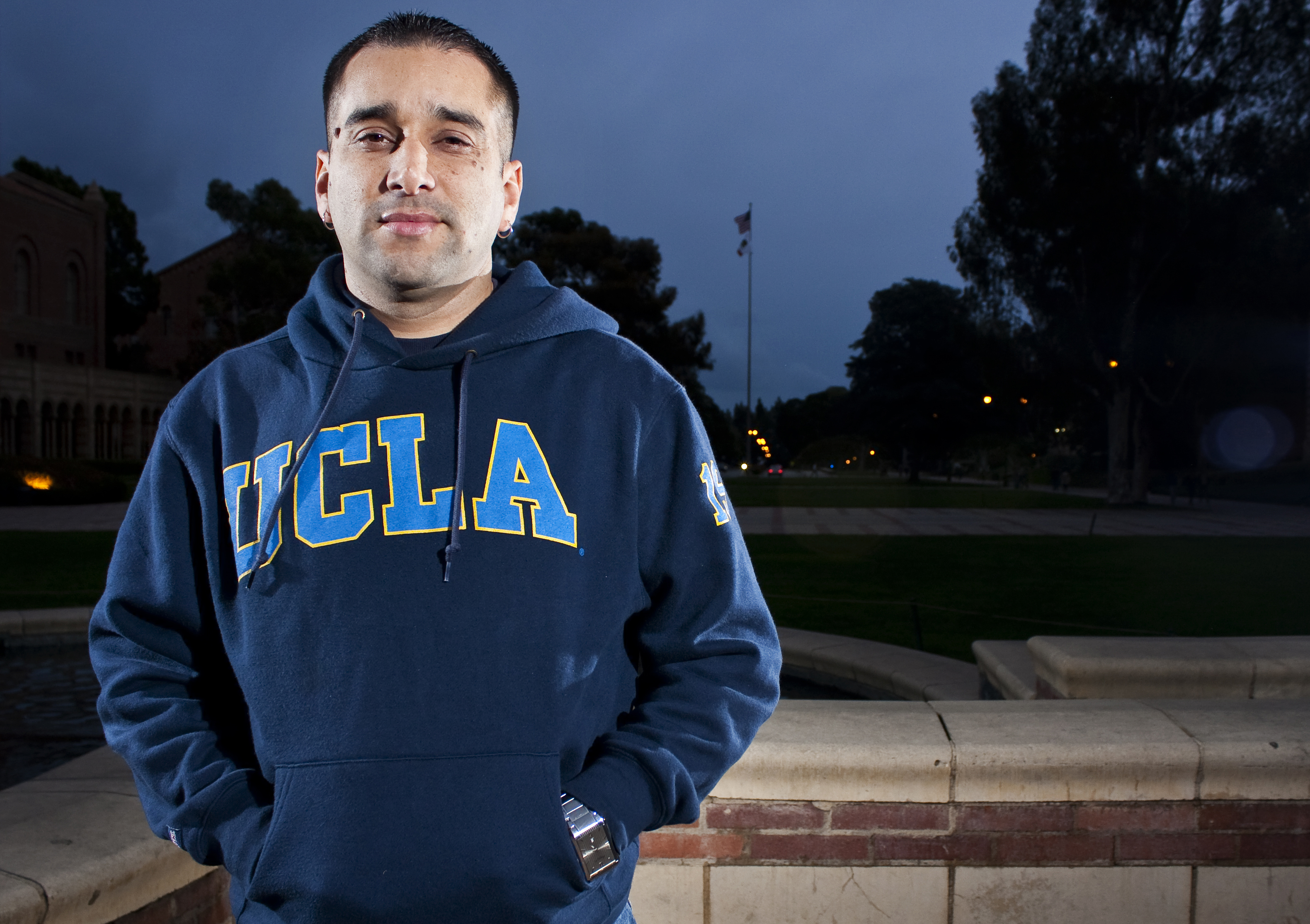Early withdrawal of U.S. troops from Afghanistan raises questions about success, re-education

Fourth-year biophysics student Johnny Torres, an Army Ranger who served in Afghanistan, is completing his bachelor’s degree at UCLA. He now works with soldiers returning home through the UCLA Veterans Resource Office as a veterans coordinator.
By Hirbohd Hedayat
Feb. 9, 2012 12:31 a.m.

Johnny Torres was deployed in Afghanistan from 2000 to 2004 as a Ranger. He participated in special operations to secure certain areas around the country.
Courtesy of Johnny Torres
A Ranger in Afghanistan for four years, Johnny Torres saw several of his friends die in combat.
Torres, now a fourth-year biophysics student at UCLA, went into combat in 2000. He participated in special operations missions to ensure the safety of certain locations around Afghanistan.
“When you go to another country as a soldier, it’s difficult to grasp the culture and identity of the nation,” Torres said.
Last week, Secretary of Defense Leon Panetta announced American soldiers deployed in Afghanistan will step out of a combat role as early as mid-2013 ““ more than a year earlier than originally planned. The decision comes as part of a larger withdrawal process from Afghanistan aimed at ending the war in 2014.
There are about 90,000 soldiers currently deployed in Afghanistan, with 22,000 soldiers scheduled to come home by fall 2012, according to statistics from the U.S. Department of Defense.
The death toll of identified U.S. servicemen has reached about 1,900 since America declared war 11 years ago, according to the data.
There are differing views on whether or not American involvement was successful.
Nushin Arbabzadah, a research scholar at the UCLA Center for the Study of Women whose work focuses on Afghanistan, said the American involvement in Afghanistan brought technological innovation in the country. She said she visited Kabul, the capital of Afghanistan, last year.
“Progress has been made in the big cities. … There have been a great deal of repairs and the building of new schools, and it is almost as if Kabul has been rebuilt,” Arbabzadah said. “Afghanistan used to have only one television station, but now there are over 20.”
She also said new roads were built outside of cities and a new class of educated people has begun to appear.
Torres, from the perspective of an American soldier, also said he saw positive changes.
“Like other soldiers, I lost plenty of my friends,” Torres said. “But being able to secure a school or whole neighborhood from the Taliban and then going back and seeing little girls safely go to school made me understand why I was there.”
But there are still unanswered questions as the war winds down, said Leonard Binder, UCLA professor of political science.
Binder said he thought withdrawing from the country early leaves many unresolved issues in Afghanistan, and the country will be left with a feeling that Americans have made things worse. He also said he’s still unsure why the U.S. became involved in the first place.
For Binder, it is still unknown if the involvement of American troops in Afghanistan was a success or failure.
“Time will tell,” he said.
As the war draws to a close, some are questioning how U.S. soldiers will transition from combat roles to civilian life once they return home.
Torres’ role in the transition process involves working at the UCLA Veterans Resource Office as a veterans coordinator. The center is aimed at helping veterans become re-educated and attain their college degrees so they can enter their chosen occupation.
He tries to help veterans re-assimilate and find a place to attend college. The impending influx of veterans attempting to enter school will further contribute to over-enrollment at junior colleges and California state universities, he said.
“I want to make a difference by helping veterans go to school and adjust to life, so they can get the benefits they are entitled to,” Torres said.
He became involved with the Veterans Resource Office upon exiting the army in 2004. He said he was encouraged by Josh Webster, one of Torres’s team leaders from his platoon in Afghanistan.
Webster, who was not available for comment, also founded the UCLA Veterans Resource Center.
“I never graduated from high school … but I knew (Webster) was there to help me, especially since I was a junior college transfer.” Torres said, who is now applying to medical school.
It was because of the help and support of the Veterans Resource Office that Torres was able to transfer to UCLA, he said. He now hopes to help other veterans do the same.


